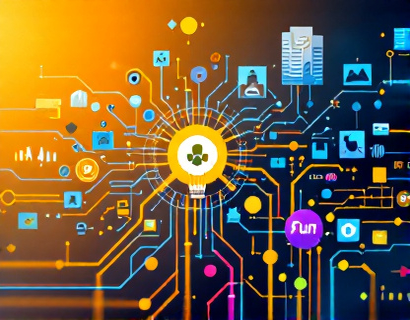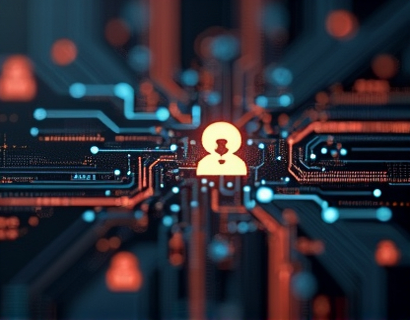Transforming Education with AI-Powered Chatbots: A Comprehensive Guide for Students, Families, and Educators
The integration of artificial intelligence in educational settings has opened new avenues for learning, making knowledge more accessible and personalized than ever before. Among these innovations, AI-powered educational chatbots stand out as a transformative tool, offering specialized insights tailored to the needs of students, families, and educators. This article delves into the capabilities and benefits of these chatbots, focusing on how they deliver industry-specific knowledge and services through verified content, ensuring a safe and enriching educational experience for all users.
Understanding AI-Powered Educational Chatbots
AI-powered educational chatbots are sophisticated software applications designed to simulate conversation through natural language processing and machine learning algorithms. These chatbots are programmed to understand and respond to user queries with relevant and accurate information, adapting to the user's level of understanding and learning pace. Unlike traditional Q&A systems, these chatbots can engage in multi-turn conversations, providing step-by-step explanations and detailed insights on various topics.
Specialized Insights for Students
For students, AI chatbots serve as personalized tutors, offering support outside the classroom. These chatbots can provide explanations on complex subjects, from basic math to advanced science concepts, tailored to the student's current knowledge level. By interacting with the chatbot, students can clarify doubts, gain deeper understanding, and reinforce their learning. The chatbot's ability to adapt to individual learning styles and paces makes it an invaluable resource for students seeking to excel in their studies.
Personalized Learning Paths
One of the key features of AI chatbots is their capacity to create personalized learning paths for students. By assessing a student's strengths, weaknesses, and learning preferences, the chatbot can recommend specific resources, exercises, and topics for further exploration. This personalized approach not only enhances learning efficiency but also boosts student engagement and motivation.
Interactive Learning Experiences
AI chatbots can transform mundane study sessions into interactive and enjoyable experiences. Through quizzes, games, and interactive scenarios, these chatbots make learning fun and engaging. For instance, a chatbot can simulate historical events, allowing students to make decisions and see the outcomes, thereby deepening their understanding of history through experiential learning.
Family Involvement and Support
Education is not solely the responsibility of schools; families play a crucial role in a student's learning journey. AI chatbots bridge the gap between school and home by providing parents and guardians with valuable insights into their child's progress and areas needing improvement. These chatbots can offer tips on how to support learning at home, suggest educational activities, and provide updates on curriculum changes and educational resources.
Parental Engagement Tools
AI chatbots can serve as a communication platform between educators and parents. They can send reminders about upcoming assignments, provide feedback on student performance, and offer suggestions for enhancing home learning environments. This continuous dialogue ensures that parents are well-informed and can actively participate in their child's education, fostering a supportive and conducive learning atmosphere.
Educator Resources and Collaboration
For educators, AI chatbots are powerful tools that streamline administrative tasks and enhance teaching methods. These chatbots can assist in lesson planning, provide access to a vast repository of educational resources, and facilitate professional development through continuous learning opportunities. By automating routine tasks, educators can focus more on teaching and student interaction.
Curriculum Development and Resource Management
AI chatbots can help educators stay updated with the latest curriculum standards and educational trends. They can suggest relevant teaching materials, articles, and multimedia resources aligned with current educational goals. This ensures that lessons are not only informative but also relevant to real-world applications, making learning more meaningful for students.
Collaborative Learning Environments
One of the most significant advantages of AI chatbots in education is their ability to foster collaborative learning environments. These chatbots can connect students and educators across different locations, facilitating group projects, discussions, and knowledge sharing. By breaking down geographical barriers, AI chatbots promote a global perspective and cultural exchange, enriching the educational experience.
Ensuring Safety and Verified Content
As with any educational tool, ensuring the safety and integrity of the content provided by AI chatbots is paramount. Reputable chatbot platforms implement rigorous content verification processes to guarantee accuracy and reliability. This involves cross-referencing information from multiple trusted sources and regularly updating the database to reflect the latest developments in various fields.
Child-Friendly Interfaces
For younger users, safety is a top priority. AI chatbots designed for educational purposes often include child-friendly interfaces that are both engaging and secure. These interfaces are crafted to be intuitive for children, with age-appropriate language and visuals. Additionally, strict privacy policies and parental controls ensure that children's data is protected and their online interactions are monitored.
Verified and Trusted Information
To build trust, AI chatbots must provide verified and trustworthy information. This is achieved through partnerships with educational institutions, experts, and reputable organizations. The chatbot's responses are backed by credible sources, ensuring that students, families, and educators receive accurate and up-to-date knowledge. This commitment to accuracy is crucial in maintaining the integrity of the educational process.
Enhancing Educational Outcomes
The integration of AI chatbots in educational settings has been shown to positively impact learning outcomes. By providing immediate feedback, personalized support, and access to a wealth of resources, these chatbots help bridge knowledge gaps and address individual learning challenges. This personalized approach not only improves academic performance but also fosters a love for learning and critical thinking skills.
Data-Driven Insights for Improvement
AI chatbots collect valuable data on user interactions, which can be analyzed to identify trends, common misconceptions, and areas where additional support is needed. Educators and administrators can use these insights to refine teaching strategies, adjust curricula, and allocate resources more effectively. This data-driven approach to education ensures continuous improvement and adaptation to the evolving needs of learners.
Conclusion
The advent of AI-powered educational chatbots represents a significant leap forward in making education more accessible, personalized, and effective. By offering specialized insights, verified content, and a safe learning environment, these chatbots empower students, support families, and enhance the capabilities of educators. As technology continues to evolve, the role of AI in education will only become more integral, shaping the future of learning for generations to come.











































